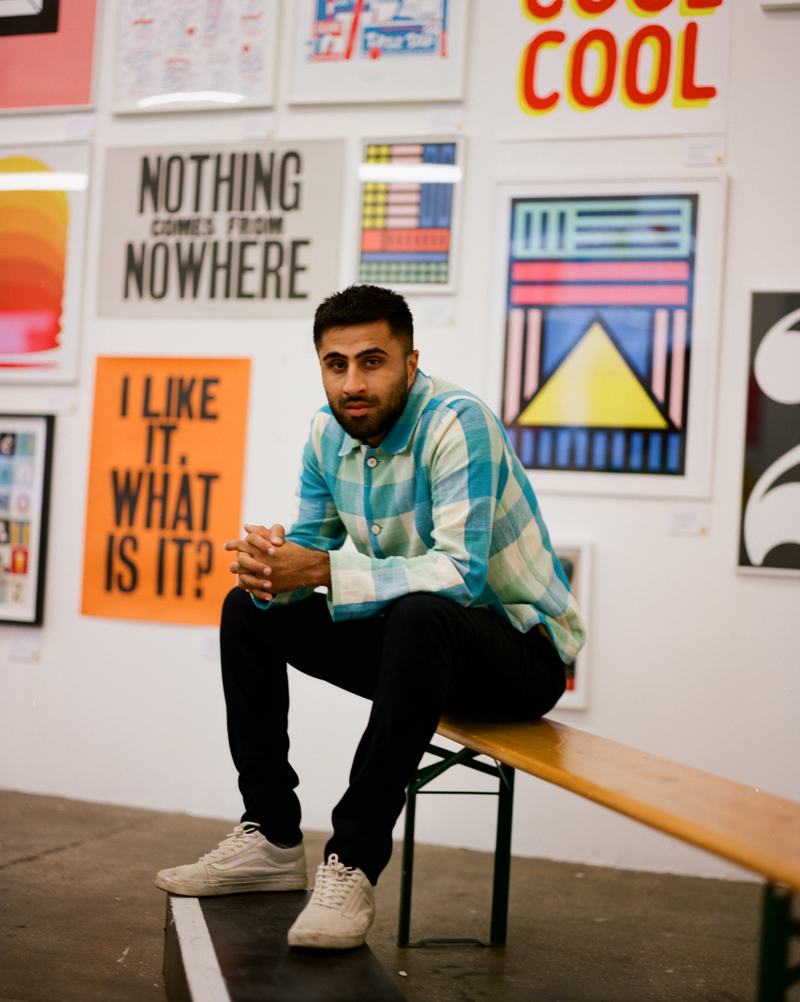Where are you from? It’s a simple question. Where are you really from? That one is far more loaded. For many of us, the way we look means it’s a familiar query. You may identify with the place you were born, raised,or live, but that awkward question can be a relentless reminder that you don’t fit in or belong there. We spoke to six young people about what they hear when asked where they’re really from, and invited them to answer it on their own terms.
Kazim Rashid
My connection to my roots is not just to one place. I feel a connection to the Middle East and also to Africa and India. It’s a connection to a whole area of the world because it’s about the culture, and the ideology around the culture. For me, what’s really important is to feel a part of something — to belong to a group of people or an idea. I think geography plays a huge role in that for a lot of people because you feel like you belong somewhere, but I don’t think it’s necessary to belong to a place. There are people from all over the world that I feel connected to because we are children of the internet. It’s almost like a new third culture has developed for me — it’s not my parents’s culture, it’s not popular culture — it’s a combination of both because my experience has been heavily influenced by both.
I travel and move around a lot. It’s liberating to move and wander. In two generations my family have migrated from India to Africa to the UK. I think there is a certain something in the genetics of migrant communities where if you are from the type of people that I’m from — people who move and have moved — continuing to move is just a part of what we do.
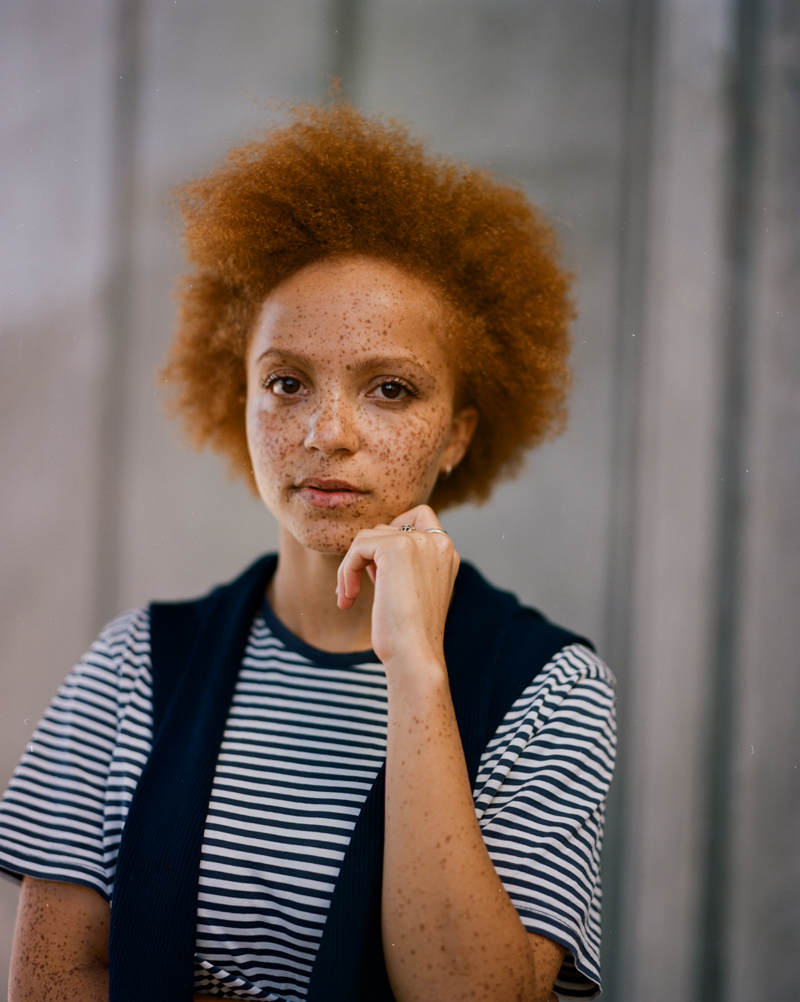
Coral Kwayie
My dad is Ghanaian and my mum is British — I think she has a bit of Welsh in her. I’m from Tunbridge Wells in Kent, a very white, upper/middle class area in the UK. If people ask me where I’m from, I always trip them up and say, “England and if you word the question correctly, then I’ll answer.” People get confused and say, “but where are your parents from?” I’ll say, “they’re from Tunbridge Wells in Kent,” It’s like, word it correctly and I’ll answer it!
Growing up, I wasn’t surrounded by people of different cultures, everyone was white. But to be honest, it doesn’t really matter because even in London I don’t fit in. Not only am I mixed race, but I have ginger hair and freckles so I don’t really fit in anywhere and I have known that from a young age. No matter where I am, people look at me as if I’m a clown or something. The other day a kid asked me if I was half leopard! I just go along with it now and I was like, “yeah, I am.”
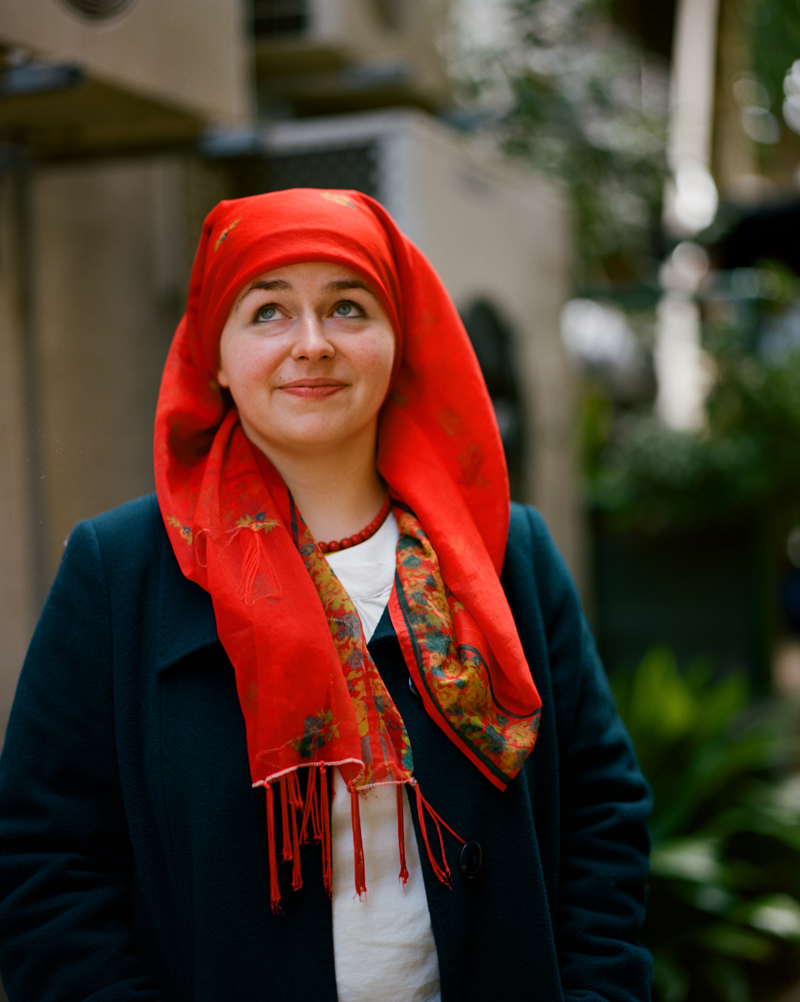
Anna Lachowska
There’s a lot of hatred in Poland towards Muslims but I am still really proud of being Polish. I feel a lot more comfortable to be Muslim in London but in Poland I feel more comfortable to be, in general. It’s home. I think on some level all people long to return to their home. No one can tell you that you don’t belong there. They can try to (and trust me they do) but you have your passport to prove them wrong.
After Brexit, I felt uncomfortable to be Polish in London for the first time. I don’t know what to do. I think about going back to Poland and maybe taking off my scarf — to make it easier for me. I know I wouldn’t be able to get along with Polish society with my scarf on. Because of the scarf people affiliate me so much with religion that they leave such little space for me as a person. I know how it used to be when I wasn’t Muslim — I remember the interactions I used to have and how people would treat me, and now it’s different. There’s always this first period of time when I meet someone new, where I have to dismantle the image that person has of me. I miss people looking at me like I’m just me and not representative of the entire Muslim population.
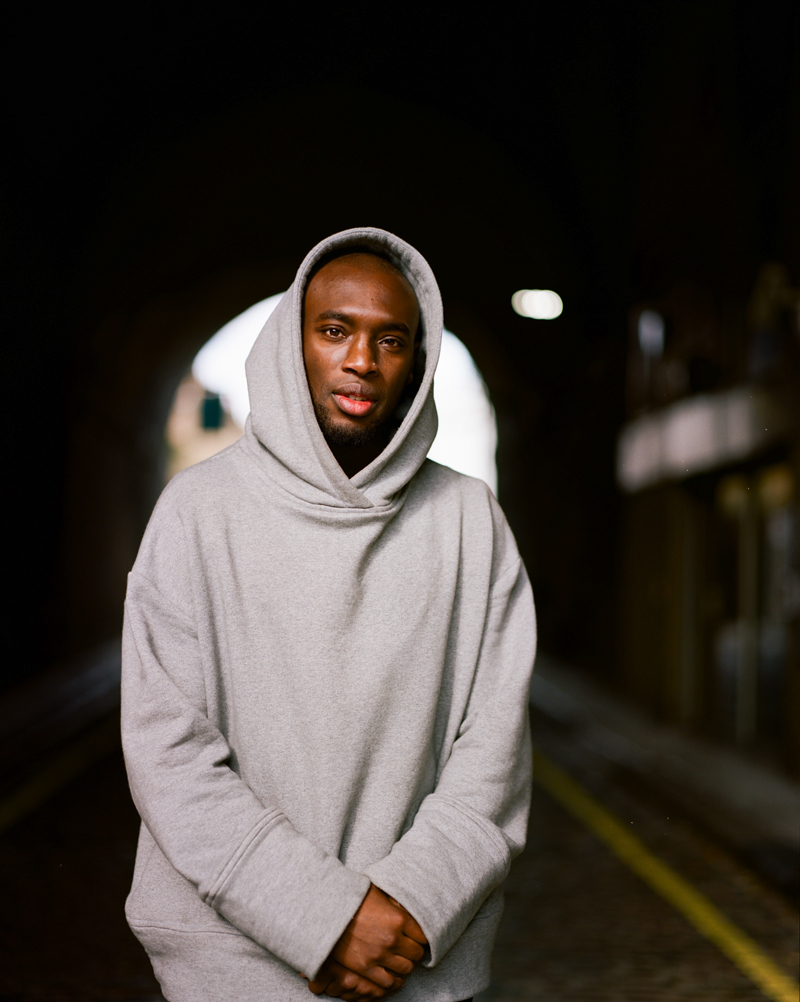
Daryl Okene
I was raised and have lived in North London all my life so when people ask me where I’m from, I say “I am British”. A lot of people think that because you have other roots, you should ignore the fact of where you have been born. I was born here in the UK, so I’m a British boy — all my mannerisms come from being British. I would also say that my roots are from Africa, Malaysia and Israel. You could consider them as juxtapositions because they’re totally different types of cultures but for me, they all curate the same feeling of home.
I wouldn’t say “I’m half this or half that”. For me, it’s unnecessary. If you mix the colors red and blue, they make purple — a whole different color. It’s it’s own thing. That’s why it doesn’t matter how many different cultural origins you have in you, it creates a new thing altogether, so for me, it’s not important to stipulate what percentage of me or part of me is what. I don’t want to give any strength or standing to one culture over another. I have been shaped by all of them.
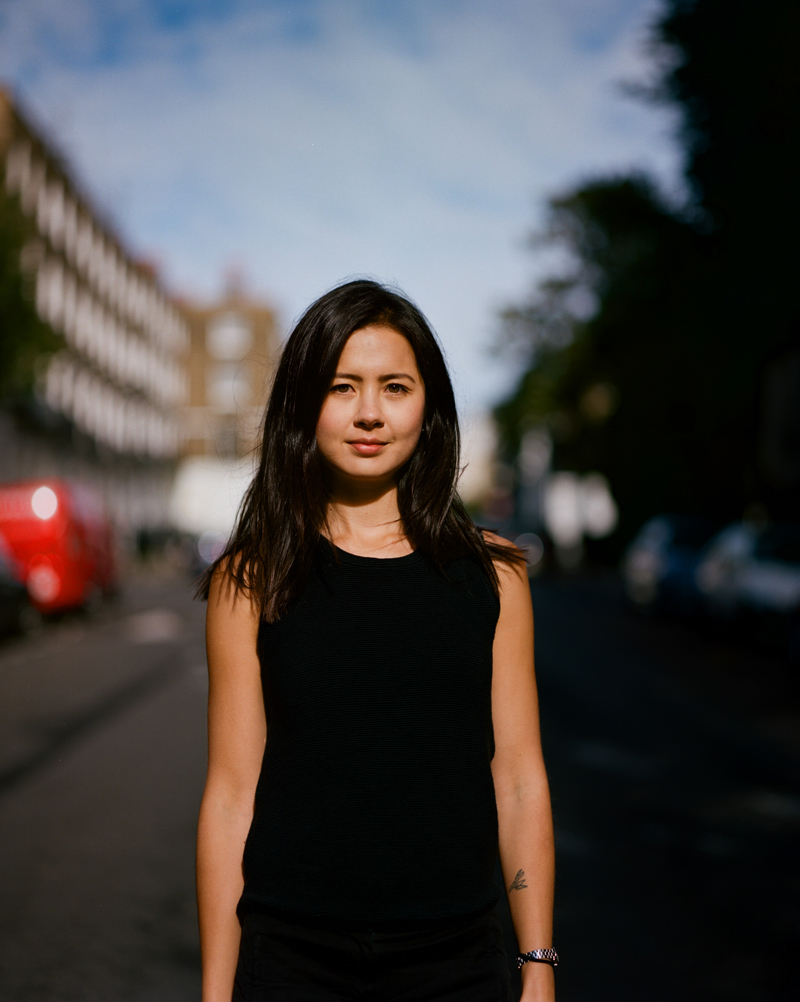
Monique Cormack
Growing up, it was just this understanding that I was different. If someone thought I was pretty, it was because I was “exotic” not because I was pretty compared to everyone else. It was always “you’re so unusual – where are you from?” I never knew what to say because I had always lived in Newcastle. I would say “I’m from Australia — from Newcastle” and then people would say “but where are you really from?” and I would say that my mum is from Indonesia. Sometimes people would just directly say “are you Japanese?” or “were you even born here?”
In Newcastle, the “cool” people were surfy and blonde and I was never that obviously. In high school, when I needed contact lenses, I actually got blue and green contacts and I also got blonde highlights which looking at me now, you can tell would look ridiculous. If I saw my daughter doing that, I’d say “why would you do that? Why do you want blue eyes?” For me it was like, “ok well now I’m more like everyone else”. My first crush in high school, his friend told me that he “has a thing for ethnic chicks.” It makes you feel really interchangeable, you think, “does that person like me for me or could I just be interchanged with any other person of Asian origin?”
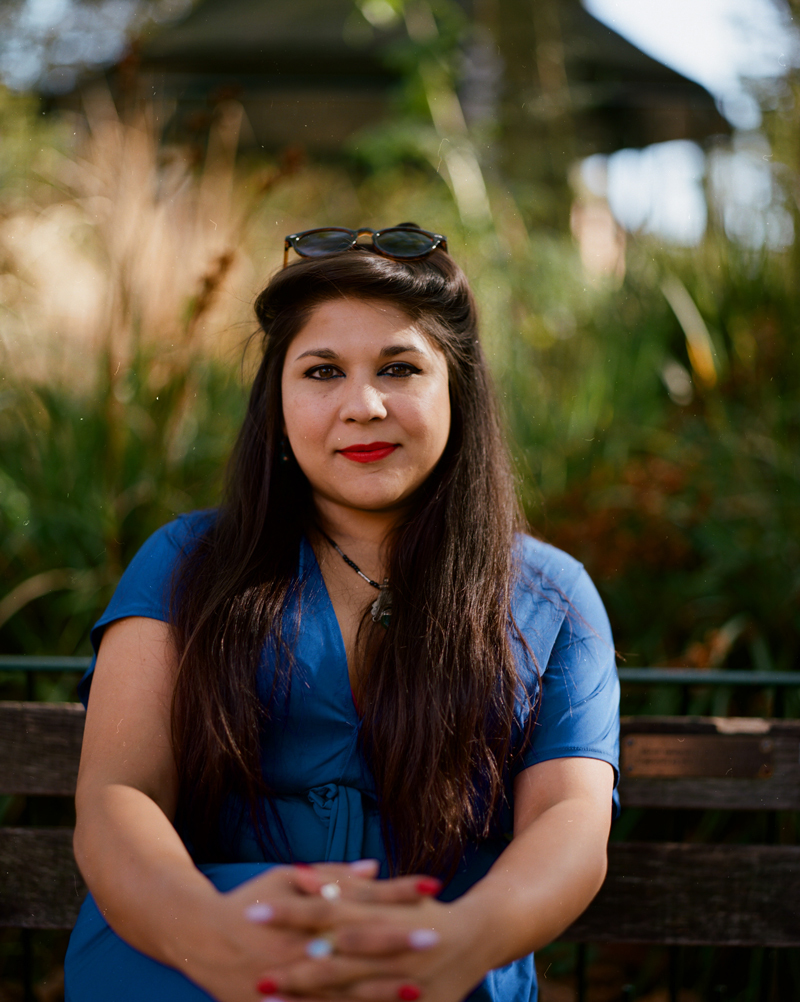
Riffy Ahmed
I’m half Bangladeshi and half Bahraini Arab. I was born in Manchester. Growing up, it’s always been known that I have an identity crisis. I have two cultures within me that are close but also really separate. It created this discourse of not knowing where you’re really from because you’re kind of seen as neither here nor there, not from your places of origin nor the place you’re born and raised, so there’s always this complex where you’re the “other.”
Being mixed for me, has been both a blessing, but also a lessening. When I go to Bangladesh, people say, “Oh no, you’re just too Westernised.” When I go to the Middle East, they’re like, “Oh, there are parts of you that are Arab in your aesthetic, but your mentality is not.” And then in London it’s “Oh, where are you from?” It’s a bit schizophrenic really.
Credits
Text Amna Qureshi
Photography Vicky Grout
